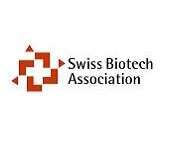Theme: Exploring the latest innovations in Bioinformatics
Bioinformatics Congress 2017
The 9th International Conference on Bioinformatics is going to be held during November 13-14, 2017 in France’s most populous city Paris. The conference focuses on foremost topics such as Evolutionary Bioinformatics, Proteomics, Systems Biology, Genomics, Immunology and Drug Discovery, Algorithms & Databases, Clinical Informatics, Biostatistics, Structural Bioinformatics and Clinical Case Reports.
ConferenceSeries Ltd organizes 1000+ Global events. Every Year across USA, Europe & Asia with support from more than 1000 scientific societies and publishes over 700 Open access journals which involves more than 100000 eminent personalities, distinguished researchers as editorial board and organizing committee members. ConferenceSeries Ltd is authorized by the International Congress and Convention Association. World Congress & International conference as momentously captivated by Nobel Laureate, Global Symposiums and Workshops, Exhibitions, Keynote gatherings and Delegates.
ConferenceSeries Ltd warmly invites all the participants to this conference. The former International conferences on bioinformatics concentrated on varied areas related to Bioinformatics and their wide applications which have drawn outstanding speakers which include esteemed researchers from elite International Universities and professionals from leading associations. Past Conferences organized can be found in conference series webpage.
The Global Bioinformatics Market is estimated to gain USD 4,285.1 million by 2020 growing at a CAGR of 21.1%. Steady increase in the usage & application of bioinformatics for R&D programs designed for sequencing genomes to better understand biological systems and developing clinical studies in pharmacogenomics and pharmacokinetics for novel drug discovery studies are expected to drive demand for bioinformatics over the next six years. The presence of increasing market appeal for genetic databases management, and demand for related sequence, structural and phylogenic analysis tools and software is the dominant factor accounting for this large share.
ConferenceSeries Ltd would like to take this wonderful opportunity to welcome everyone interested in Bioinformatics to “9th International Conference on Bioinformatics” that is scheduled at Paris, France during November 13-14, 2017. The theme of the conference is ‘Exploring the latest innovations in Bioinformatics’.
Bioinformatics Congress 2017 includes topics such as Evolutionary Bioinformatics, Proteomics, Structural Bioinformatics, Genomics, Systems Biology, Biostatistics, Algorithms & Databases, Clinical Informatics, Immunology & Drug Discovery and Clinical Case Reports.
The conference Bioinformatics Congress 2017 is a specially designed bundle meeting that involves an ample range of critically significant sessions. It would lay a platform for the interaction between experts all over the world and intends in advancing the scientific discoveries.
Theme: Exploring the latest innovations in Bioinformatics
Track 1: Bioinformatics and computational biology
Bioinformatics and computational biology are interrelated disciplines allowing computational methods to analyse biological data and develop algorithms and analytical methods by acquiring knowledge from various disciplines like computer science, physics, statistics etc. This field is gaining importance in various research fields like Neural Networks, Artificial Intelligence for developing algorithms. It is used in developing bioinformatics software and tools for drug designing, molecular simulations, drug discovery , molecular modelling and numerous biological databases. Subfields related to this topic are computational immunology, computational pharmacology, computational neuroscience, computational cancer biology etc.
Relevant conferences:
9th International Conference on Bioinformatics and Computational Biology at Honolulu, United States, March 20-22, 2017; 8th International Conference on Bioinformatics & Systems Biology during July 20-21, 2017 at Baltimore, USA; France; 8th International Conference on Proteomics and Bioinformatics ; 4th International Conference on Big Data Analysis and Data Mining during September 07-08, 2017 at Paris; 8th International Conference on Bioinformatics Models, Methods and Algorithms, February 21-23, 2017 at Porto, Portugal
Track 2: Systems Biology in Bioinformatics
Systems biology includes the study of systems of biological components, which may be molecules, cells, organisms or entire species. Systems Biology deals with data and models at many different scales, from individual molecules through to whole organisms. Computational systems biology addresses questions fundamental to our understanding of life and progress here will lead to practical innovations in medicine, drug discovery and engineering. It aims to develop and use efficient algorithms, data structures, visualization and communication tools with the goal of computer modelling of biological systems. Systems Biology approach harnesses the power of computation and systems-level analyses to formulate and solve critical biological problems. This integrative approach of systems biology will close the loop from individual genetics to populations, and constitute the strongest asset for the successful translation of systems biology findings to clinical applications.
Relevant Conferences:
8th International Conference on Bioinformatics & Systems Biology at Baltimore, USA during July 20-21, 2017; International Conference on Enzymology, March 20-21, 2017 at Rome, Italy; 8th International Conference on Proteomics and Bioinformatics at Osaka, Japan, May 22-24, 2017; EMBO|EMBL Symposium: New Approaches and Concepts in Microbiology, Heidelberg, Germany during June 27 -30, 2017; Systems Biology of Adaptive Immunity, Ascona, Switzerland, May 14-17, 2017; ECCB 2017, July 21-25, 2017 at Prague, Czech Republic
Track 3: Emerging Trends in Proteomics
Proteomics is a branch of molecular biology that is concerned with the systematic, high-throughput approach to protein expression investigation of an organism or a cell. It is a large-scale comprehensive study of a specific proteome, including information on protein affluence, their variations and alterations, along with their interacting partners and networks, in order to discern cellular processes. Proteomics enables the understanding the structure, function and interactions of the entire protein content in a specific organism. Bioinformatics for proteomics has grown significantly in the recent years. The ability to process a high amount of data together with high specificity and precision of the new algorithm in the protein description, characterization and quantization makes it possible to obtain a high amount of elaborated data. Bioinformatics tools for proteomics have diverse applications ranging from simple tools to compare protein amino acid compositions to refined software for massive protein structure determination.
Relevant Conferences:
8th International Conference on Proteomics and Bioinformatics at Osaka, Japan, May 22-24, 2017; 9th International Conference and Expo on Proteomics, Paris, France during October 23-25, 2017; 3rd International Conference and Expo on Lipids: Metabolism, Nutrition & Health, December11-13, 2017 at Rome, Italy; Zomes IX Conference 2017, Rome, Italy, February 14-17, 2017; EMBL Symposium: From Single- to Multiomics: Applications and Challenges in Data Integration, Heidelberg, Germany November 12 -14 2017; Keystone Symposia - Single Cell Omics, Stockholm, Sweden, May 26-30, 2017
Track 4: Emerging Trends in Genomics
Genomics includes the study of genomes, particularly the set of techniques, analytical methods, and scientific questions related to the study of complete genomes. Scientists have progressed from the analysis of a small number of genes to the analysis of thousands of genes, from the study of the units of inheritance to the whole genome of an organism. Genomics straps the availability of complete DNA sequences for entire organisms by the latest next-generation sequencing technology. Next-generation sequencing has led to spectacular improvements in the speed, capacity and affordability of genome sequencing. Genome sequencing is expected to have the most impact in characterizing and diagnosing genetic diseases; for appropriate treatment; and providing information about an individual’s likely response to treatment to reduce adverse drug reactions. Genomics and bioinformatics are now poised to revolutionize the healthcare system by developing customized and personalized medicine.
Relevant Conferences:
9th International Conference on Genomics and Pharmacogenomics, June 15-16, 2017, London, UK; 7th International Conference on Plant Genomics, Bangkok, Thailand, July 03-05, 2017; EMBL Conference: Mammalian Genetics and Genomics, Heidelberg, Germany, October 24-27, 2017; Chromatin and epigenetics: from mechanism to function, Munich, Germany, April 05-07, 2017; Festival of Genomics London, January 30-February 01, 2017, London, United Kingdom; The Fifteenth Asia Pacific Bioinformatics Conference at Shenzhen, China, January 16-18, 2017
Track 5: Health Informatics in Bioinformatics
Clinical Informatics otherwise known as Healthcare Informatics is the application of information technology and informatics to provide healthcare services. Clinical Informatics is concerned with use of information in health care by clinicians. Personalized Medicine assures patient-tailored treatments that upgrade patient care and reduce overall treatment costs by focusing on and “-omics” data gathered from patient. Preventive Medicine targets on the health of individuals, groups, and defined populations. Molecular Medicine strives to advocate the understanding of normal body functioning and disease pathogenesis at molecular level. Bioelectronic Medicine is the merging of molecular medicine, neuroscience and bioengineering to develop therapies. Clinical research leads to generation of high-quality, statistically sound and reliable data from clinical trials maintained in Clinical Databases. Bioinformatics tools are profitable in Medical Research helps in the comparison of genetic and genomic data and understanding of various molecules that are amenable for the disease helps to analyze and document the biological systems and pathways. The analytical capability of bioinformatics podium united with clinical data from patient in Electronic Medical Reports can affirm potential biomarkers and clinical phenotypes that allow researchers to develop experimental strategies using selected patient.
Relevant Conferences:
2nd International Conference on Clinical Chemistry and Laboratory Medicine, Atlanta, USA during September 28-29, 2017; 9th Clinical Dermatology Congress, October 19-21, 2017 at New York, USA; 5th International Conference on Medical Informatics and Telehealth, August 29-30, 2017 at Prague, Czech Republic; 4th International Conference on Biomedical and Health Informatics, May 25-26, 2017 at Chicago, USA; 6th International Conference on Biostatistics and Bioinformatics, Atlanta, USA, November 13-14, 2017; IAES International Medical Informatics Conference 2016 at Plovdiv, Bulgaria; INDIN — 2017 at Emden, Germany, July 24-26, 2017; 14th International Conference on Informatics in Control, Automation and Robotics, Madrid, Spain during July 29-31, 2017; RadAsia 2017 — RadiologyAsia 2017 at Singapore, Singapore, May 18-20, 2017
Track 6: Evolutionary Bioinformatics
Evolutionary Bioinformatics is an advanced discipline that addresses the practice of data processing and the engineering of data for the investigation of biological evolution. Amassing of information at the huge scale has turned out to be progressively cost-efficient through latest advances in high-throughput genotyping and sequencing innovations. It sees genomes as medium for conveying different types of data through the generations from the past to present. The study of evolutionary biology uncovers that living beings of different types which were previously oblivious originated over the span of numerous eras mostly through moderate and progressive alterations.
Relevant Conferences:
8th International Conference on Proteomics and Bioinformatics, May 22-24, 2017, Osaka, Japan; 9th International Conference and Expo on Proteomics, October 23-25, 2017, Paris, France; 8th International Conference on Bioinformatics & Systems Biology, Baltimore, USA, July 20-21, 2017; 6th International Conference on Biostatistics and Bioinformatics, Atlanta, USA, Nov 13-14, 2017; BIOINFORMATICS 2017 at Porto, Portugal, February 21-23 2017; International Conference on Genomic Medicine, Maryland, United States, February 22 -24 2017; 9th International Conference on Bioinformatics and Computational Biology, Honolulu, United States during March 20-22 2017; CIBCB — 2017 at Manchester, United Kingdom August 23-25, 2017
Track 7: Structural Bioinformatics
Structural bioinformatics is a sub discipline of bioinformatics that deals with the three dimensional structures of biomolecules. This field portrays the goals to create methods for manipulating information about biological macromolecules and the application of these methods to solve problems in biology and creating new knowledge. It attempts to model and discover the basic principles underlying biological machinery at the molecular level. Structural bioinformatics combines applications of physical and chemical principles with algorithms from computational science. With the success of the genome sequencing projects, the evolution of high-throughput methods for expression analysis and compound identification, structural bioinformatics is now resurgent and is doing its part to accelerate the drug discovery process. The techniques that structural bioinformatics involves are particularly valuable in the area from target identification to lead discovery. Structural bioinformatics can be used for function and ligand prediction in the case of novel targets.
Relevant Conferences:
6th International Conference on Biostatistics and Bioinformatics, November 13-14, 2017 at Atlanta, USA; 9th International Conference on Structural Biology at Zurich, Switzerland during September 18-19, 2017; 3rd International Conference on Transcriptomics during October 30 - November 01, 2017 at Bangkok, Thailand; 8th International Conference on Bioinformatics & Systems Biology, July 20-21, 2017, Baltimore, USA; The Fifteenth Asia Pacific Bioinformatics Conference during January 16-18, 2017 at Shenzhen, China; Festival of Genomics London at London, United Kingdom during Jan 30 - Feb 01 2017; Metabolomics bioinformatics for life scientists, 07-13 February 2017, Cambridge, United Kingdom; 13th IASTED International Conference on Biomedical Engineering, 20 - 22 February 2017, Innsbruck, Germany
Track 8: Bioinformatics Algorithms & Databases
Practically about 600 bioinformatics tools were advanced over the past two years, and are being used to facilitate data analysis and its interpretation. Web assistance in bioinformatics provides interfaces that have been developed for an ample array of applications for bioinformatics. The main enhancement derived from the fact that end users do not have to deal with software and database preservation overheads. There are differing software predominant for bioinformatics like open-source, sequence alignment, healthcare, freeware molecular graphics systems, biomedical and molecular mechanics modelling. In more recent advances, the equivalent of an industrial revolution for ontology was pronounced by the apparition of latest technologies representing bio-ontologies.
Relevant Conferences:
4th International Conference on Big Data Analysis and Data Mining during September 07-08, 2017 at Paris, France; 8th International Conference on Proteomics and Bioinformatics, May 22-24, 2017, Osaka, Japan; 9th International Conference and Expo on Proteomics, October 23-25, 2017 at Paris, France; 8th International Conference on Bioinformatics & Systems Biology during July 20-21, 2017 at Baltimore, USA; 8th International Conference on Bioinformatics Models, Methods and Algorithms, February 21-23, 2017 at Porto, Portugal; CIBCB — 2017 at Manchester, United Kingdom, August 23-25, 2017; 9th International Conference on Bioinformatics and Computational Biology at Honolulu, United States, March 20-22, 2017; ACIIDS 2017 at Kanazawa, Japan during April 03-05, 2017
Track 9: Immunology and Drug Discovery
Immunology involves the development and application of methods of bioinformatics, mathematics and statistics for the study of immune system biology. Through drug discovery mechanism new drugs can be discovered and designed and the causes of the diseases can be analyzed and ways could be found to tackle them. The modern drug discovery process integrates the understanding of the molecular basis for a disease with crucial understanding of how potential drug molecules interact with particular disease targets and the whole organism. Bioinformatics is a growing field which can explore the causes of diseases at the molecular level, explain the occurrence of the diseases from the genetic angle and make use of computer techniques to diminish the scope of study and enhance the efficiency of the results so as to curtail the cost and time.
Relevant Conferences:
8th Molecular Immunology & Immunogenetics Congress, Rome, Italy, March 20-21, 2017; 8th European Immunology Conference during June 29-July 01, 2017 at Madrid, Spain; 9th Annual Meeting on Immunology and Immunologist at Kuala Lumpur, Malaysia during July 03-05, 2017; 18th Annual Drug Discovery Summit at Berlin, Germany, June 12-13, 2017; DDRI — 3rd Drug Discovery Re-Invented, Cancun, Mexico, February 21-24, 2017; 24th Annual Molecular Med Tri-Con 2017 during February 19-24, 2017 at San Francisco, United States; 26th Conference of Asian Pacific Association for the Study of the Liver at Shanghai, China, February 15-19, 2017
Track 10: Biostatistics - An Approach to Bioinformatics
Biostatistics is a branch of applied statistics and deals with developing and applying techniques to summarize and evaluate medical and biological data. The field of biostatistics to bioinformatics furnish quantitative answers to complicated questions from complicated data. The dominant objective of this conference is to conceive a medium for statisticians from across the world to present their latest study, discovery in statistical applications which can prompt novel research projects and directions as well as improve statistical programs. Specialized and technical methods have been made and are currently advancing in the fields of biostatistics and bioinformatics as a mutual resource to exhibit them with a wide range of favourable applications in genetics, genomics, and biomedical areas. The doctrine of biostatistics and bioinformatics will be popularized through driving applications which offers learning approach and therefore, is available to a wide range of fields.
Relevant Conferences:
6th International Conference on Biostatistics and Bioinformatics, November 13-14, 2017 at Atlanta, USA; 2nd International Conference on Biochemistry at Macau, Hong Kong during September 21-22, 2017; 8th International Conference on Bioinformatics & Systems Biology, Baltimore, USA, July 20-21, 2017; 6th International Conference on Biostatistics and Bioinformatics at Atlanta, USA November 13-14, 2017; 38th Annual Conference of the International Society for Clinical Biostatistics, July 9-13, 2017, Vigo, Spain; 39th Conference on Stochastic Processes and their Applications at Moscow, Russia July 24-28, 2017; XXXIV. International Seminar on Stability Problems for Stochastic Models, August 25- 29, 2017 at Debrecen, Hungary; 61st World Statistics Congress – ISI2017 at Marrakech, Morocco July 16- 21, 2017
Track 11: Epigenetics
Epigenetics is a study of effect on gene activity and expression by chromosomal changes and also heritable phenotypic change that doesn’t come from modification of a genome. Computational Epigenetics which uses data from bioinformatics datasets for analysis and modelling of DNA. Research areas including epigenetic data processing and analysis , epigenome prediction, applications in cancer epigenetics uses large amounts of data for data processing and to predict the epigenetic information from genomic sequence uses tools and software of bioinformatics. Research topics originating from this field are Population Epigenetics, Evolutionary Epigenetics, Genome Browsers and Medical Epigenetics.
Relevant conferences:
Chromatin and epigenetics: from mechanism to function, Munich, Germany, April 05-07, 2017; 8th International Conference on Proteomics and Bioinformatics, May 22-24, 2017, Osaka ; 9th International Conference on Genomics and Pharmacogenomics, June 15-16, 2017, London, UK; 7th International Conference on Plant Genomics, Bangkok, Thailand, July 03-05, 2017; EMBL Conference: Mammalian Genetics and Genomics, Heidelberg, Germany, October 24-27, 2017; 8th Molecular Immunology & Immunogenetics Congress, Rome, Italy, March 20-21, 2017; ; 2nd Annual Advances in Immuno-Oncology Congress, London, United Kingdom during May 15-16, 2017;
Track 12: Clinical Case Reports
Clinical case reports are compelling source of evidence in the field of medicine and is aimed to improve global health and concise about a common or critical clinical scenario and develop a broader search for evidence. Case reports provide detailed information of the symptoms, diagnosis, signs, treatment, and effect of an individual patient. It contains a demographic report of the patient, but usually portrays an unusual or new instance. A favourable case report gives a clear perception about the gravity of the observation being reported. Case report aids in the identification of advanced trends or diseases and discover new drug, its side effects and potential usage. It even analyzes limited manifestations of a disease. Case reports play a significant role in medical discipline thereby administering a structure for case-based training.
Relevant Conferences:
6th Global Experts Meeting on Medical Case Reports during October 16-18, 2017, San Francisco, California, USA; 11th International Conference on Allergy, Asthma & Clinical Immunology, Edinburgh, Scotland during August 16-17, 2017; 7th Annual Congress on Clinical Microbiology, August 28-30, 2017 at Philadelphia, USA; 8th Clinical Microbiology Conference at Paris, France during Oct 26-27, 2017; 10th International Congress on Clinical Virology at Dubai, UAE, December 4-6, 2017; European Congress of Clinical Case Reports, Vienna, Austria, March 07-10, 2017; 2nd Annual Advances in Immuno-Oncology Congress, London, United Kingdom during May 15-16, 2017; EMBL-Cancer Core Europe Conference: Cancer Immunotherapy, February 02-04, 2017 at Heidelberg, Germany; APBCS — 6th Asia-Pacific Breast Cancer Summit during February 17-19, 2017, Hong Kong, China.
Market Research Report: Bioinformatics
Summary of the Conference:
The 9th International Conference on Bioinformatics is scheduled to take place during November 13-14, 2017 at Paris, France which aims on foremost topics such as Structural Bioinformatics, Clinical Case Reports, Systems Biology, Proteomics, Genomics, Algorithms & Databases, Biostatistics, Immunology & Drug Discovery, Clinical Informatics and Evolutionary Bioinformatics. The past International conferences on bioinformatics concentrated on diverse areas related to Bioinformatics and their wide applications which have engaged protruding speakers which comprises of elevated scientists from finest International Universities and experts from noted associations. Conferences that previously organized can be seen in conference series webpage.
The conference aims to give a raised floor to scientists, academics and additionally modern expert to share and grasp any ideas for future viewpoints. This conference will highlight these most recent issues and innovative works. It focuses on speakers who hold high profiles i.e. dignified personalities in the field of Bioinformatics and other medical scientists. Individuals from scientific community are more bent towards Bioinformatics. This gathering advances transposing learning among colleagues and helps the rising patterns with new development in the enormous field of Bioinformatics.
Scope and Importance of Bioinformatics Research:
Bioinformatics uses advances in the area of computer science, information science, computer and information technology, communication technology to solve complex problems in life. Data capture, data warehousing and data mining have become major issues for biotechnologists and biological scientists due to sudden growth in quantitative data in biology such as complete genomes of biological species including human genome, protein sequences, protein 3-D structures, metabolic pathways databases, cell line & hybridoma information, biodiversity related information. Advancements in information technology, particularly the Internet, are being used to gather and access ever-increasing biological information. Functional genomics, proteomics, discovery of new drugs and vaccines, molecular diagnostic kits and pharmacogenomics are some of the areas in which bioinformatics has become an integral part of Research & Development. The knowledge of multimedia databases, tools to carry out data analysis and molecular modelling and biological systems on computer workstations as well as in a network environment has become essential for any Bioinformatics student. Bioinformatics, the multidisciplinary area, has grown so much that one divides it into molecular bioinformatics, organal bioinformatics and species bioinformatics. The importance and usefulness of Bioinformatics is realized in last few years by many industries. Therefore, large Bioinformatics R & D divisions are being established in many pharmaceutical companies, biotechnology companies and even in other conventional industry dealing with biological. Bioinformatics is thus rated as number one career in the field of biosciences.
Why it’s in Paris, France?
Paris, the City of Light, is the most populated city in France. Known for its architecture, museums, bridges, cathedrals, wide and luxurious boulevards, elegant cuisine, and numerous monuments, it also homes one of the oldest universities in history, University of Paris. The history of Paris goes back more than 2,000 years when some 60 Celtic tribes called the Gauls inhabited the region and Parisii, one of their tribes, eventually gave their name to the present-day city.
With the development of in silico methods, Bioinformatics has progressed in France and the establishment of two administrative organizations, the Groupement de Recherche sur les Génomes (GREG) and the Groupement de Recherche 1029 (GDR 1029) of the Centre National de la Recherche Scientifique (CNRS) . These organizations have created the dynamics that placed France among the developed nations that support research in Bioinformatics. France has a tradition of scientific and technological innovation and ensures students to fully utilize their creativity. Paris plays host to leading centres of learning in the European region. According to the French Biotechnology Report, the industry is anticipated CAGR of 2.1% for a five-year period 2014-2019, thereby contributing a value of $6.5bn by the end of 2019. France is the world’s fourth largest biotech industry with 23 listed biotech companies. It has around seven pharma/biotech innovation clusters Lyon Biopôle (world-class cluster, Rhône-Alpes), Medicen (world-class cluster, Paris region), Alsace Biovalley (world-class candidate cluster, Alsace), Atlantic Biotherapies (Pays de la Loire), Cancer Bio Santé (Midi-Pyrénées, Limousin), Eurobiomed (Languedoc Roussillon, Provence-Alpes-Côte d’Azur). Paris is also known to attract Biotechs as it accommodates the biggest Biotech cluster in Europe with 56 Biotech companies. Paris is a fertile ground for innovative companies, with radical inventions and ideas.
Members Associated with Bioinformatics Research:
Individuals associated with Bioinformatics Research are Bioinformatics Organizations, Bioinformatics Research Centres, Bioinformatics Institutes, Bioinformatics Associations, Bioinformatics Companies, Bioinformatics Research Laboratories, Bioinformatics Research, Bioinformatics Societies and Services, Bioinformatics innovation Providers, Bioinformatics Databases and Software engineers, Biomedical and Biopharmaceutical Industries for Medicine Research.
The Members who are connected with Bioinformatics research includes Societies, Universities, Associations, Institutes and other Research Organizations.
Societies Associated with Bioinformatics Research:
Bioinformatics societies around the world are serving needs, research funds and education to develop and progress the Bioinformatics sector.
Societies in France:
• Association des Jeunes Bioinformaticiens de France
• Académie des sciences
• Société Française de Biochimie et Biologie Moléculaire (SFBBM)
• Société Française de Pharmacologie et de Thérapeutique
• Société Française de Génétique
• Société Française d'Electrophorèse et d'Analyse Protéomique
• The Society for Immunotherapy of Cancer
• French Association for the Applications of Medical Informatics
• The French National Research Agency
Societies in Europe:
• French Society of Theoretical Biology
• EMBL - European Bioinformatics Institute
• European Society for Medical Oncology
• Hellenic Society for Computational Biology and Bioinformatics
• European Proteomics Association
• Israeli Society for Bioinformatics and Computational Biology
• Helmholtz Network for Bioinformatics
• Dutch Society for Theoretical Biology
• Bioinformatics Italian Society (B.I.T.S.)
• EMBnet - European Molecular Biology Network
• German Informatics Society
• Netherlands Bioinformatics Center
• Polish Bioinformatics Society (PBIS)
• Society for Bioinformatics in the Nordic Countries
• Czech Free and Open Bioinformatics Association
Societies in USA:
• International Society for Computational Biology (ISCB)
• International Society for Clinical Biostatistics (ISCB)
• San Diego Bioinformatics Forum
• Great Lakes Bioinformatics Consortium
• Mid-South Computational Biology and Bioinformatics Society (MCBIOS)
• Bioinformatics Organization
• Bioinformatics and Bioengineering Technical Committee (BBTC)
• Boston Area Molecular Biology Computer Types (BAMBCT)
• Great Lakes Bioinformatics Consortium (GLBC)
• Ohio Bioinformatics Consortium
• Vancouver Bioinformatics User Group
Industries Associated with Bioinformatics Research:
The Major Industries or Companies and laboratories associated with Bioinformatics are listed below,
By City - Some of the major companies in Paris.
Biomanda, France Biotech, Ariana Pharma, Certara, Hybrigenics, AB Science, Abivax, Eligo Bioscience, OSE Immunotherapeutics, Vaxon Biotech
B. By Country – Some of the major companies in France.
Acino, Galderma, Daiichi Sankyo, Stallergenes Greer, CleanCells, Genethon, Antabio, Octapharma, Valneva, Certara, Pfizer, Cerep, Smartox Biotechnology
C. Europe & USA:
Progenus, Caprion Proteomics inc, Euformatics, Biomax Informatics AG, Illumina, Rosetta Biosoftware, Integromics, Ariadne Genomics
D. Global:
Rapture Biotech, BioCOS, Clontech Laboratories, Center for Bio Informatics Research Institute (CBRI), Biomed Informatics, Accelrys, Inc., Affymetrix, Inc., Agilent technologies, Inc., Genevabioinformatics, Nonlinear dynamics, Quest Diagnostics, Inc., Life Technologies corp., Illumina, Bruker Daltonics, inc., and Biomax informatics AG
Universities Associated with Bioinformatics Research:
In City- Paris:
Université Paris VII, Paris-Sorbonne University, Institut Français de Bioinformatique: IFB, Computational Biology Institute, France Genomique, University of Paris-Saclay, Paris Diderot University, Paris Descartes University.
In Country- France:
Centre National de la Recherche Scientifique (CNRS), University of Rouen, Nice Sophia Antipolis University, France, University of Pisa, France Genomique, Computational Biology Institute, Ecole des Mines de Paris.
In Worldwide:
European university Switzerland, Vilnius university, Uppsala University, Universita degli study di Torino, Maastricht University, Graz University of Technology, Harvard University, Swiss Institute of Bioinformatics, University of Oxford, Stanford University, University of Cambridge.
Market Value on Bioinformatics Research:
According to Bcc report, it is estimated that the global bioinformatics market was valued at nearly $2.8 billion in 2011, nearly $3.2 billion in 2012, and is forecast to grow to nearly $7.5 billion by 2017 after increasing at a compound annual growth rate (CAGR) of 18.7%. The bioinformatics market is projected to reach USD 16.18 Billion by 2021 from USD 6.21 Billion in 2016, growing at a CAGR of 21.1% during the forecast period according to MarketsandMarkets report. As per the Allied Market Research, the global Bioinformatics market was valued at $3.4 billion in 2013, and it is expected to reach $12.8 billion by 2020. The market is expected to grow at a CAGR of 21.2% during 2014-2020. Major contributing factors for this growth are increasing application of drug discovery and development using bioinformatics tools, which proves to be cost and time efficient for the pharmaceutical companies. However, the bioinformatics platforms segment is expected to grow at the highest CAGR during the forecast period; high growth in this segment can be attributed to the advantages of bioinformatics platforms, such as reduction in overall time for processing data, phylogenetic analysis, and identification of sequence similarity. By 2020, knowledge management tools are expected to take over platform market and would emerge as the highest revenue generating segment in the overall bioinformatics technology and service market. European market will grow from nearly $1.1 billion in 2015 to $1.7 billion in 2019 at a CAGR of 12.0% for the period 2014-2019.
Market Growth of Bioinformatics Research:
The global bioinformatics market is expected to grow at a CAGR of 15.5% between 2014 and 2020. The market was worth US$10.04 bn in 2013 and is projected to reach US$30.87 bn by the end of 2020. The drug development segment is anticipated to lead all application segments. North America is expected to maintain its dominance in the global bioinformatics market with a revenue worth US$11,927.9 mn by 2020. Asia Pacific is expected to witness the highest growth with a CAGR of 18.7% throughout the forecast period. To maintain their position in the global bioinformatics market, the large number of market players operating in the global bioinformatics market are investing in research and development projects. They are also looking forward towards technological advances for increasing application in biosciences and integrated information technology. The top three market players in the global bioinformatics are Affymetrix Inc., Accelrys Inc., and CLC bio A/S. They together comprise approximately 34.6% of the overall global bioinformatics market in 2014. The expansion of biotechnology applications in fields of forensic research and disease diagnosis is drawing the attention of various healthcare organizations and professionals. According to the TMR report, biotechnology with technological and process advancements tends to create high-wage job opportunities in developing and developed countries due to which governments are focusing on the growth of the biotechnology industry.
For better and accurate results, it is imperative that the bioinformatics techniques are operated by skilled personnel. The need for heavy investment in installation and tools upgradation training tends to impede the growth of the industry. Due to this, there is a lack of skilled manpower in the bioinformatics sector who can adapt to sophisticated and high-end biotechnology process and techniques. The scarcity of skilled workers is hindering the growth process of large clinical laboratories as they struggle to automate their processes. On the other hand, the small and medium laboratories have amplified their efforts to abridge and boost their operations with the available resources. Research and development activities also demand highly skilled personnel, but the lack of it is obstructing the growth process making it difficult for organizations and market players to benefit from their research investments.
Key segments of the Global Bioinformatics Market
-
Global Bioinformatics Market, based on Platforms:
- Sequence manipulation platforms
- Sequence alignment platforms
- Sequence analysis platforms
- Structural analysis platforms
-
Global Bioinformatics Market, based on Tools:
- General knowledge management tools
- Specialized knowledge management tools
-
Global Bioinformatics Market, based on Serivces:
- Sequencing services
- Database and management services
- Data analysis services
- Other services
-
Global Bioinformatics Market, based on Serivces:
- Preventive medicine
- Molecular medicine
Conference Highlights
- Evolutionary Bioinformatics
- Structural Bioinformatics
- Emerging Trends in Proteomics
- Emerging Trends in Genomics
- Systems Biology in Bioinformatics
- Bioinformatics Algorithms & Databases
- Immunology and Drug Discovery
- Health Informatics in Bioinformatics
- Biostatistics - An Approach to Bioinformatics
- Clinical Case Reports
- Bioinformatics and Computational Biology
- Epigenetics
To share your views and research, please click here to register for the Conference.
To Collaborate Scientific Professionals around the World
| Conference Date | November 13-14, 2017 | ||
| Sponsors & Exhibitors |
|
||
| Speaker Opportunity Closed | Day 1 | Day 2 | Day 3 |
| Poster Opportunity Closed | Click Here to View | ||
Useful Links
Special Issues
All accepted abstracts will be published in respective Our International Journals.
- Journal of Proteomics & Bioinformatics
- Journal of Pharmacogenomics & Pharmacoproteomics
- Journal of Data Mining in Genomics & Proteomics
Abstracts will be provided with Digital Object Identifier by
























































